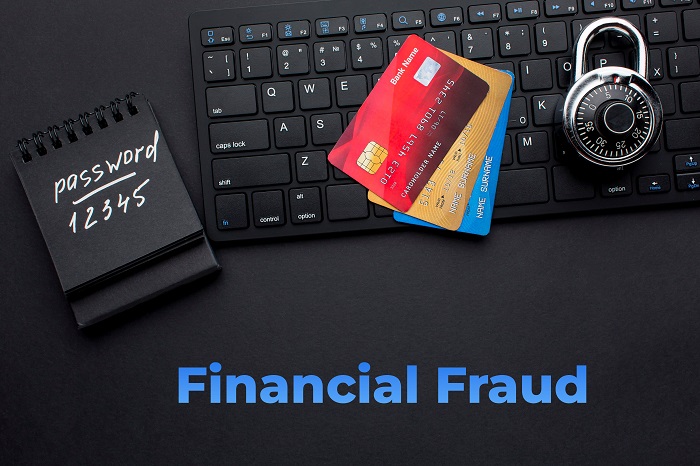In today’s increasingly digital world, financial fraud has become a prevalent issue affecting individuals and businesses alike. The rise in online transactions has created numerous opportunities for fraudsters, making it essential to understand the legal mechanisms available to combat such crimes. One of the most effective tools in recovering lost funds is the chargeback process, often necessitating specialized legal assistance. Firms like Radly Group legal assistance have emerged as crucial allies in this battle, providing expert guidance and representation to those seeking to reclaim their money.
The Mechanics of Financial Fraud
Financial fraud encompasses a broad spectrum of deceptive practices designed to unlawfully acquire assets. Common forms of financial fraud include identity theft, phishing schemes, and fraudulent investment opportunities. Fraudsters continuously evolve their tactics, exploiting both technological vulnerabilities and human psychology. Victims of such fraud face significant financial losses, emotional distress, and a complex recovery process that often requires professional legal intervention.
Chargebacks: A Vital Tool for Victims
Chargebacks are a consumer protection mechanism that allows individuals to dispute fraudulent or unauthorized transactions. When a cardholder identifies a suspicious transaction, they can request their bank to reverse the charge. However, the chargeback process is intricate, involving multiple steps and parties. This complexity underscores the importance of seeking expert legal assistance from organizations like Radly Group. Their legal expertise can significantly enhance the chances of a successful chargeback.
Key Steps in the Chargeback Process:
- Identification of Fraud: The first step involves recognizing a fraudulent transaction. This can be challenging, as fraudsters often disguise their activities.
- Documentation: Gathering comprehensive evidence to support the claim is crucial. This includes transaction records, communication with the fraudulent party, and any other relevant documentation.
- Filing the Chargeback: The victim must submit a chargeback request to their bank, providing all necessary evidence.
- Bank’s Review: The bank reviews the request, which may involve communication with the merchant and other parties.
- Resolution: The bank decides on the validity of the chargeback request and either reverses the charge or denies the claim.
Legal Framework and Challenges
The chargeback process is governed by a complex legal framework that varies by jurisdiction and financial institution. Consumer protection laws, credit card network regulations, and bank policies all play a role in determining the outcome of a chargeback claim. Legal professionals, particularly those with experience in financial fraud, are adept at navigating these regulations, ensuring that their clients’ rights are protected throughout the process.
Common Challenges in Chargeback Cases:
- Merchant Disputes: Merchants may contest the chargeback, arguing that the transaction was legitimate.
- Insufficient Evidence: Lack of comprehensive documentation can lead to the denial of a chargeback claim.
- Bank Policies: Each bank has its own procedures and timelines, which can complicate the process.
The Role of Legal Assistance in Chargebacks
Professional legal assistance can be a game-changer in chargeback cases. Lawyers with expertise in financial fraud and chargebacks provide invaluable support by:
- Ensuring Comprehensive Documentation: Legal professionals help clients gather and organize the necessary evidence to support their chargeback claim.
- Navigating Complex Regulations: Experienced lawyers understand the intricate legal framework governing chargebacks and can effectively advocate for their clients.
- Representing Clients in Disputes: In cases where merchants dispute the chargeback, legal representation ensures that the client’s rights are upheld.
Case Study: Radly Group’s Success in Chargeback Recovery
Radly Group legal assistance has a proven track record in helping clients recover funds lost to financial fraud. Their approach typically involves:
- Detailed Case Assessment: Radly Group begins by thoroughly assessing the client’s situation, identifying the nature of the fraud, and evaluating the available evidence.
- Strategic Planning: They develop a tailored strategy to maximize the chances of a successful chargeback, considering the specific circumstances of each case.
- Expert Representation: Radly Group represents clients in all interactions with banks, merchants, and regulatory bodies, ensuring a robust defense of their claim.
Preventative Measures Against Financial Fraud
While legal recourse is essential in recovering lost funds, prevention remains the best defense against financial fraud. Individuals and businesses can adopt several strategies to safeguard their assets:
- Regular Monitoring: Frequently reviewing financial statements can help detect fraudulent transactions early.
- Enhanced Cybersecurity: Implementing strong passwords, two-factor authentication, and anti-malware software can protect against cyber-attacks.
- Education and Awareness: Staying informed about common fraud tactics and how to avoid them is crucial for prevention.
The Future of Financial Fraud Prevention
The future of financial fraud prevention will likely involve:
- Advanced Technologies: Utilizing artificial intelligence and machine learning to detect and prevent fraudulent activities.
- Global Cooperation: Increased collaboration between international regulatory bodies, financial institutions, and legal professionals to combat cross-border fraud.
- Stronger Regulations: Governments and regulatory agencies will continue to enhance legal frameworks to protect consumers from evolving fraud tactics.
Conclusion
Navigating the complexities of financial fraud and chargebacks requires a deep understanding of legal principles and a strategic approach. Legal assistance from firms like Radly Group legal assistance plays a vital role in ensuring that victims of fraud can successfully reclaim their lost funds. By staying informed and proactive, individuals and businesses can better protect themselves against the ever-present threat of financial fraud, ensuring financial security in an increasingly digital world.




